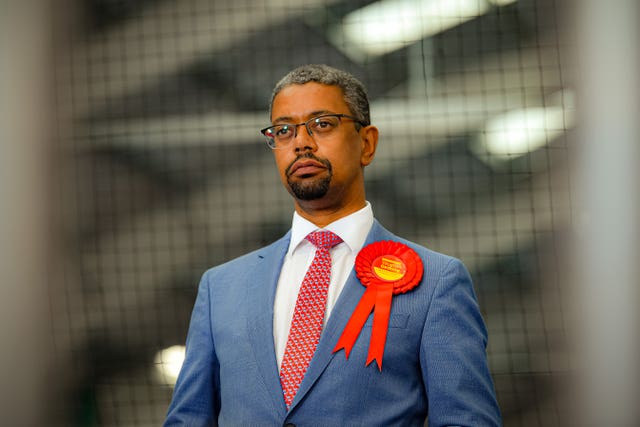Labour set to win Senedd election after surprise results
The results of the Senedd’s 20 remaining regional seats are set to be announced on Saturday

Welsh Labour looks set to win the Senedd election after the party fought off challenges from the Tories to key red wall seats in North Wales.
Labour First Minister Mark Drakeford said his party had “exceeded expectations” to end Friday’s constituency count with 26 seats, three short of the number held in the last Welsh Parliament and five short of a majority.
The results of the Senedd’s 20 remaining regional seats are set to be announced on Saturday, with coronavirus restrictions at count venues having slowed down the process.
Meanwhile, the Welsh Conservatives have eight seats, including taking Vale of Clwyd from Labour, and Plaid Cymru have five having lost former leader Leanne Wood’s Rhondda seat to Labour.

Polling at the start of the campaign suggested Labour was facing its worst ever result and was at risk of winning as few as 22 of the Senedd’s 60 seats, a loss of seven from 2016, though later polls suggested a stronger showing.
After voting closed at 10pm on Thursday, party sources said retaining all of its seats in the Senedd remained “a massive challenge”.
Mr Drakeford, who extended his majority for his Cardiff West seat by more than 10,000 votes, said he was delighted his party had “exceeded expectations”.
“Did I think we would be up approaching the top of the twenties? That was probably at the top end of what I thought was achievable, given the extraordinary circumstances of this election,” he said.
Mr Drakeford said he will wait until all election results are in on Saturday before he turns his mind to forming a new Welsh Government.
Asked if he believed he was on course to winning a majority, Mr Drakeford said: “No party has ever won a majority in the Senedd. It’s very hard to find those extra couple of seats.
“But we will be far closer to it than I think anybody imagined we would be.
“I will want to sit down tomorrow when we have a full suite of results in front of us to think about how we can achieve what we need here in Wales, which is a stable and progressive government.”
Health minister Vaughan Gething held his Cardiff South and Penarth seat with 18,153 votes (49.89%), a increase of 4,879 votes from 2016, and said Labour and Mr Drakeford’s handling of the coronavirus pandemic was a “major factor” in the party’s results.
He told the PA news agency: “We’ve had to make life-changing choices that affected every single family in the country.
“The pandemic has thrust the First Minister in the spotlight, and most people like what they’ve seen in the way he’s handled the pandemic.”
Mr Gething said Labour had needed to “re-earn the trust of the people of Wales”, which he said saw the party lose only one of Wales’ so-called red wall seats, Vale of Clwyd, to the Tories.
“The Tories put a lot of heavy artillery into North Wales. The Prime Minister visited several times, the Chancellor was there, Andrew RT Davies was there on regular occasions, and they launched their manifesto in Wrexham,” he said.
Wrexham, Clwyd South and Delyn, were all held despite being targeted by the Tories after they flipped them from Labour in the 2019 general election.
Welsh Tory leader in the Senedd Andrew RT Davies said his party’s taking of Vale of Clwyd from Labour was a “brilliant result”, but suggested traditional Labour voters who voted Tory in the 2019 general election had now “come home”.
Mr Davies told the PA news agency: “It does seem from other seats that have been declared in other parts of Wales that the Labour voters have come home to it after the, shall we say, Brexit election of 2019.
Labour said Plaid Cymru had “imploded” in losing its Rhondda seat to Labour’s Elizabeth Buffy Williams and failing to take target seats Llanelli and Aberconwy.
Rhondda’s outgoing MS, Leanne Wood, told ITV Wales the result was “disappointing”, but said her party ran a “clean and honest campaign”.
Labour’s strong results will minimise its reliance on other parties in order to form a government, with Plaid previously thought as the most likely to enter into a coalition with them were Labour some way short of a majority.





